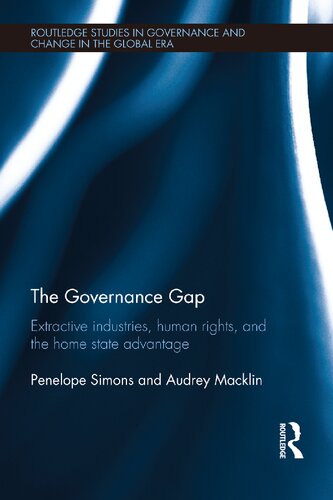

Most ebook files are in PDF format, so you can easily read them using various software such as Foxit Reader or directly on the Google Chrome browser.
Some ebook files are released by publishers in other formats such as .awz, .mobi, .epub, .fb2, etc. You may need to install specific software to read these formats on mobile/PC, such as Calibre.
Please read the tutorial at this link: https://ebookbell.com/faq
We offer FREE conversion to the popular formats you request; however, this may take some time. Therefore, right after payment, please email us, and we will try to provide the service as quickly as possible.
For some exceptional file formats or broken links (if any), please refrain from opening any disputes. Instead, email us first, and we will try to assist within a maximum of 6 hours.
EbookBell Team

4.8
14 reviewsThis book explores the persistence of the governance gap with respect to the human rights-impacting conduct of transnational extractive corporations operating in zones of weak governance.
The authors launch their account with a fascinating case study of Talisman Energy’s experience in Sudan, informed by their own experience as members of the 1999 Canadian Assessment Mission to Sudan (Harker Mission). Drawing on new governance, reflexive law and responsive law theories, the authors assess legal and other non-binding governance mechanisms that have emerged since that time, including the UN Guiding Principles on Business and Human Rights. They conclude that such mechanisms are incapable of systematically preventing human rights violating behaviour by transnational corporations, or of assuring accountability of these actors or recompense for victims of such violations. The authors contend that home state regulation, while not a silver bullet, has a crucial role to play in regulating such conduct. They pick up where UN Special Representative John Ruggie’s Guiding Principles on Business and Human Rights left off, and propose an innovative, robust and adaptable template for strengthening the regulatory framework of home states. Their model draws insights from the theoretical literature, leverages existing public, private, transnational, national, ‘soft’ and hard regulatory tools, and harnesses the specific strengths of state-based governance.
This book will be of interest to academics, policy makers, students, civil society and business leaders.